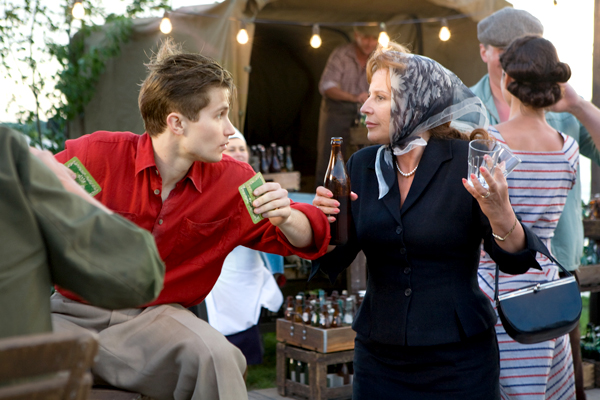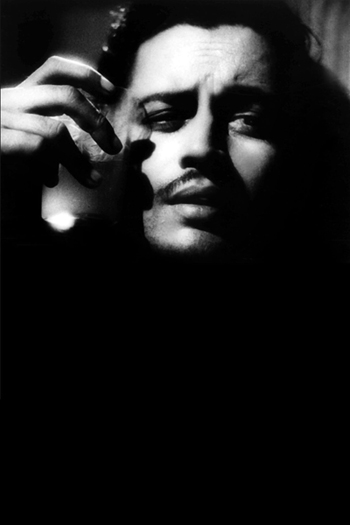|
Reviews of Recent Independent, Foreign, & Documentary Films in Theaters and DVD/Home Video

THE 47TH NEW YORK FILM FESTIVAL, PART
THREE When renowned octogenerian Polish director Andrzej Wajda completed the epic Katyn two years ago, he declared himself free of the ghosts of World War II and that he would then focus on intimate love stories. But in Sweet Rush, he returns to the bittersweet truth that the past continues to haunt the present. Wajda turns for the fourth time to a story by Jarosław Iwaszkiewicz. Two middle-aged women in the 1950’s enjoy a lovely afternoon together strolling around a small town. Their friendship has been sealed by the shared mourning of their sons’ deaths in the Warsaw Uprising. But as the local doctor’s wife, Marta (Krystyna Janda), bids her friend farewell, she is distracted by the handsome exuberance of a much younger man, who stirs feelings that could be maternal, or something else. Like a real-life version of Truffaut’s Day for Night, the fourth wall is then broken, and Wajda and Janda relate to each other as director, actress, and friends—they first worked together in Man of Marble (1977). Janda concludes each day’s shooting of the film-within-the film in her hotel room reliving the illness and recent death of her husband, cinematographer Edward Kłosiński ,Wajda’s frequent collaborator. Her monologue is shot by cinematographer Paweł Edelman (The Pianist) as if she’s in a shadowed Edward Hopper painting, foreshadowing the futility of Marta’s new relationship. An intriguing date movie to test a budding relationship, Everyone Else takes love on vacation, and the first vacation for a young couple is always the hardest. In her second feature, writer/director Maren Ade slowly builds up the suspense as to whether lovebirds Chris (Lars Eidinger) and Gitti (Birgit Minichmayr) will make it through this rite of passage together. They fancy themselves independent iconoclasts, he as an idealistic architect, she as a free-spirited rock music promoter. They stay in his parents’ summer home in Sardinia, where he wants to repeat his annual ritual of hiking, beach-going, and socializing with hail hearty neighbors. The couple is continually surprised by how pop love songs help them communicate their feelings (though the German pop culture references may lose their impact for an American audience). Throughout, guys may find Gitti annoying, women may become exasperated with Chris, and some may want to fast-forward to a future when these two distinctive personalities have had maturity knocked into their heads. Nevertheless, the director realistically puts the day-by-day pressures of a modern couple under a sympathetic microscope.
The second
week of the Festival’s annual masterworks series is the first American
retrospective, “A Heart as Big as the World:
The Films of Guru Dutt,” of the Hindi actor, director, and
producer. Pyaasa
(Thirst), a 1957 black-and-white
paean to artists, is a must for anyone interested in the dawn of
Bollywood. In the middle of a long, melodramatic story of a destitute
poet is a startling cri di coeur for realism in films that vividly recalls the production
number “Remember My Forgotten Man” in Busby Berkeley’s Gold Diggers
of 1933. While the lyrics are based on the bitter poem “Brothels” by
Sahir Ludhianvi, the music by S. D. Burman is much more sitar and tabla-based
than today’s Indian pop musicals, and as the lead character, the
tormented Dutt is no conventionally chiseled hero.
Nora Lee Mandel
|


